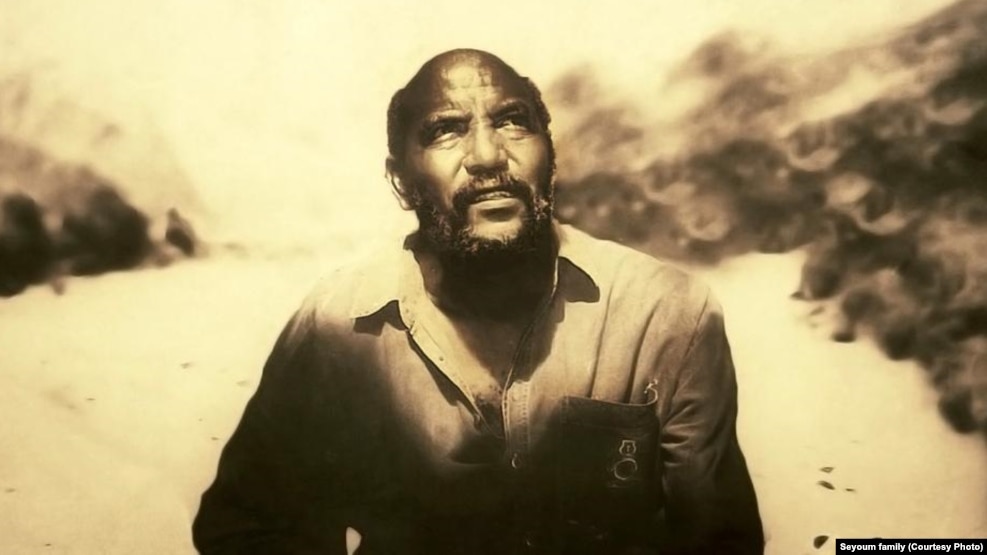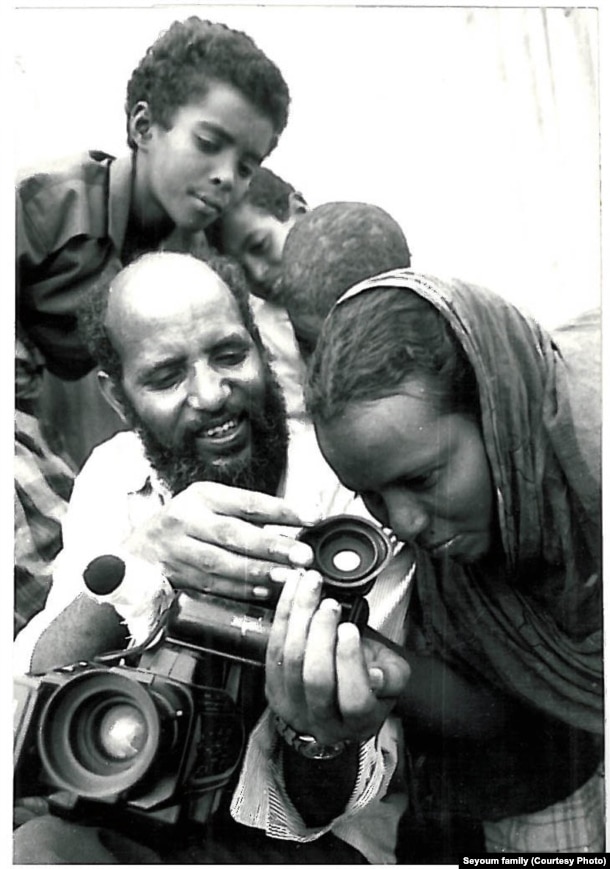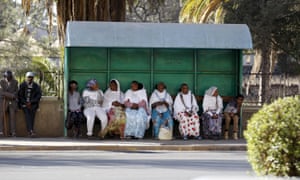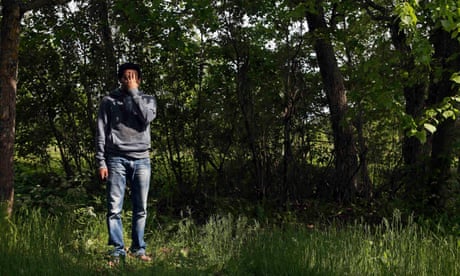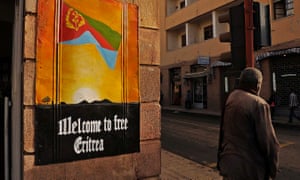APPG on Diaspora, Development and Migration (DDM), APPG on Refugees and the Migrants’ Rights Network (MRN)
Chair: Baroness Young of Hornsey Speakers: Dr Kibreab Gaim, Dr Lul Seyoum, Dr Jonathan Campbell, Michela Wrong and Dr Heaven Crawley
Monday, 12 September 2016 16.00-17.30, Committee Room 16 House of Commons
This panel discussion was organised to look at the uneven response to refugees arriving in Europe with a particular focus on those originating from Eritrea.
This event was chaired by Baroness Young of Hornsey, co-chair of APPG DDM, who expressed her gratitude to the APPG on Refugees and the collaboration with the Migrants’ Rights Network to organise the event. Baroness Young highlighted the importance of gaining a sense of forward movement within this very complex, difficult and highly politicised subject. She hoped that the event would be positive, in the sense that solutions and recommendations might develop from the discussion. Baroness Young explained that part of the reason for establishing the APPG DDM is to try and reframe the way we think about these issues. She expressed the way refugees are represented in the media and other spaces is problematic. This event would aim to explore why there is such an 'uneven' response to refugees arriving in Europe, with particular focus on those originating from Eritrea, and to also raise awareness about how diaspora communities can contribute to solutions.
Dr Kibreab Gaim - Research Professor at London South Bank University
Dr Gaim focussed on assessing why post-independence Eritrea is one of the major refugee producing countries in the world. He also set out to address how those who fled Eritrea had been received by the European Union, and why the concerning policy in the UK had suddenly changed.
Dr Gaim explained that the major driver of forced migration from Eritrea is the indefinite National Service. The National Service, when first introduced, required all Eritrean citizens between the ages of 18 - 40 to serve for 18 months as a strategy to strengthen their country, which was initially popular among Eritreans. However, the service soon became open-ended and now lies at the heart of the cause of forced migration. Dr Gaim emphasised that once an individual joins, they are not allowed to leave and are not paid properly- thereby becoming a slave of the state.
Currently in Eritrea, the State controls economic activity, there are no opposition parties and no opposition politics is tolerated. People who flee are considered traitors. Immigration is only possible once an exit visa has been obtained from the government which is very difficult to obtain and often denied.
The indefinite National Service has been equated with forced labour, and the UN equates forced labour to a modern form of slavery, which Dr Gaim emphasised as a motive for Eritreans who are fleeing. Dr Gaim also stated that up to 90% of Eritrean refugees are aged between18-24; further demonstrating the ational service as a driving force of migration.
Dr Gaim went on to talk about the sudden change of UK policy, particularly after March 2015. He elaborated that the change in UK policy suggests that the situation in Eritrea had improved, implying violations of human rights might have ceased, when in fact there was no change in Eritrea - "the dismal state prevails". Dr Gaim stated that the changes in the UK's policy are a result of 'fact-finding' missions in Eritrea. He explained that in 2014, Danish authorities sent three civil servants on a 'fact-finding' mission to Eritrea as a response to a sudden, dramatic increase in the number of Eritreans arriving in Denmark. During Denmark's election year the leading party panicked as the right wing began to gain support in response to rising levels of migrants arriving. Dr Gaim suggests, the 'fact-finders' were actually going to Eritrea to find anything they could to support high-level rejection of asylum, this was later met with a lot of criticism which led to the Danish Government dropping the enquiry and discrediting the report.
Surprisingly however, the UK government then adopted all of the recommendations of the Danish Immigration Service, basing its updated policy on their recycled ideas. Dr Gaim remarked that the UK government could have used reliable information from sources such as the UN Commission but instead chose to base their new policy exclusively on the Danish report. The UK currently has a new policy that is not substantially different from the one they had before.
In summary, Dr Gaim's presentation emphasised the indefinite National Service in Eritrea as the main force of migration. He stressed that the UK's 2014 policy was based on the discredited work of a Danish 'fact-finding' mission in Eritrea, which had aimed to find evidence that would justify denying Eritreans asylum in Europe.
Dr Lul Seyoum - spokesperson, influencer, fighter for women's rights and founder and director of International Centre of Eritrean Refugees and Asylum Seekers ICERAS
Dr Seyoum began her presentation with a reflective moment to remember all those who have perished on their way to safety. She explained that in that short pause, 10 people across the world had fled their countries; one person flees their country every three seconds. She then went on to tell the story of the Lampedusa Ship Wreck of 2013, where over 350 people died, including 270 Eritreans. Dr Seyoum elaborated on how the uneven response to refugees is due to the crisis often being identified with numbers, with the lives lost becoming mere statistics. To counteract this, she told the personal story of Helen, a mother of 3 children who perished at sea while travelling to Sweden to find freedom, security and a better future.
Dr Seyoum went on to explain the work of ICERAS, the International Centre of Eritrean Refugees and Asylum Seekers. She stressed that it is important to understand that not all refugees come to the UK; in the West the largest number go to Germany and then the USA, with 86% of refugees migrating to developing countries.
Dr Seyoum finished by emphasising the need for a broader and brighter picture. We must remember that many children perished before and after the tragic death of Alan Kurdi, a child whose body was photographed being carried from the sea by his distressed father - images which captured public sympathies and increased public empathy towards Syrian refugees. 60 million displaced people worldwide should prompt us to ask ourselves what our role is. If we are to avoid such loses then there should be full engagement from all of us. She ended her presentation with a quote by Martin Luther King: "Our lives begin to end when we are silent about things that matter".
Dr Jonathan Campbell - Researcher at School of Oriental and African Studies (SOAS)
Dr Campbell's research has recently focused on the British Asylum System although today he aimed to provide a very clear trajectory of Home Office Policy, beginning from 2013. Dr Campbell explained that the Home Office's concern with Eritrea dates back to 2013, at the time when large numbers of 'migrants' were crossing the Mediterranean, many trying to move North into central Europe, to Calais and then the UK. Around this time was also the emergence of the British Government's Policy, nicknamed by the UK's European colleagues as an "à la carte" approach, in which the UK would pick and chose which groups of migrants or policies to support and which to neglect. This led to a situation whereby the UK in effect withdrew from dealing with the migrant crisis in Europe. Dr Jonathon stated that this withdrawal of the UK then contributed to the broader 'crisis' in Europe.
A significant number of Syrian refugees are largely recognised by the UNHCR as refugees due to the Middle Eastern conflict, ultimately because most countries in Europe were engaged with that conflict in some way. As the 'migrant crisis' developed, it became clearer however that among the Syrians were a large number of Eritrean nationals, all of whom had been able to secure some sort of status or protection. This situation then raised concern across Europe - starting in Denmark, progressing to Norway and then the UK.
Dr Campbell went on to explain the process of the Danish 'fact-finding' mission, as Dr Gaim had outlined earlier in the discussion. He pointed out how in Eritrea there was no high-level political violence visible - as was the case with Syria. In 2014, the Danish government sent researchers to Eritrea to discover what was driving the migration. As Dr Gaim had outlined previously, Dr Campbell stressed that the research of these missions was not academic in any way. The researchers had consulted with officials which is problematic as they themselves are complicit in the human rights violations which Eritreans are fleeing.
Dr Campbell explained that once the reports were published, the purpose of these missions became very clear; to prevent Eritreans from entering Europe. The missions would usually take the form of very short visits, mainly only to the capital of Eritrea, Asmara, and would usually only involve speaking to government officials. The investigators do not move around the country and crucially have no access to sites such as detention centres and prisons. These factors combined mean that the principal source of information for the tours is the information provided by high level Eritrean officials. So, with the exception of the latest policy (which is still largely dependent on this kind of research), all the 'fact-finding' missions are dependent on anonymous Eritrean officials, and thus cannot be verified. Nonetheless, the Danish, Norwegian and UK reports are all based on such anonymised reports, and all conclude that it is safe (for Eritreans) to go home. Dr Campbell argues that the Home Office officials are seemingly seeking to do anything to prevent refugees from entering Europe.
Following on from the conclusion that it is safe for Eritreans to return home, the UK government argues that all Eritreans need to do is 'regularise' the situation with the Eritrean Government. The Home Office states that individuals returning to Eritrea simply have to pay a 2% income tax on their income earned overseas, and sign a 'letter of apology' at an Eritrean embassy. Dr Campbell outlined that the individuals returning to Eritrea even have to pay the 2% tax on any benefits or asylum seekers allowance and show all receipts at an embassy (i.e. even if the individual did not earn wages). The UK Home Office argue that if Eritreans 'regularise' themselves with officials in Asmara, no reprisals will be taken against them. The Eritrean government maintains that it is improving the National Service by increasing the pay and reducing the contracted duration of service.
The UK Home Office say that the Eritrean Government is not acting in a way that contradicts the Universal Declaration on Human Rights in terms of how nationals are treated upon their return to the country. However, Dr Campbell argues that after three years of these promises, there is no evidence of this. A large problem is there is no independent monitor of human rights in Eritrea, meaning that there is no independent organisation to provide information on what is actually happening, no independent access to the detention centres or prisons, and there have certainly been no changes in Eritrean policy.
He explains that over the last 2 years, the UK Home Office has in effect sought to create its own objective evidence and has published in excess of 600 pages of evidence in the policy since early 2014.
Dr Campbell concluded by emphasising that things are not alright. The Home Office is deliberately creating an illusion, in an attempt to create objective evidence for immigration officials to use as a basis for rejecting asylum. The situation in Eritrea has been made very clear; we are refusing to allow people their freedom of movement across the planet. Eritreans are thus being rejected refugee status and often being forced to live destitute in the streets.
Michela Wrong - Journalist and Author who has spent almost two decades reporting on Africa
Michela began by paying respect to the work that has been done by all the other speakers to help refugees across the world. She went on to say that her line of work and expertise can offer something different to the discourse. Michela finds that we talk a lot about the refugee crisis, often in a way that the public are so concerned with the crisis and what's happening with the individuals, that we strip the account of a political, geo-strategic and historical context - and this is what she can bring.
Michela explained that the Eritrean government is not as popular as it once was - when she first visited Eritrea in the 1990s - but that it certainly enjoys some popularity, and every government needs a narrative with which it presents its case, to its public and to the West. Many people remark on the hostility of the Eritrean government towards the West, without considering that there might be a reason for that, which is what she wanted to remind
us of. She added that if we don't attempt to see things from that other perspective then we are likely to find a puzzling hole at the heart of the situation.
Michela shared her understanding that Eritrean refugees are young and often fleeing military service, but that nobody has explored how the government actually justifies enforcing the military service. Her work in Eritrea began in 1996, when the government that had been in power for three years and had huge support from the population after winning independence. Contrasting that to today, the country has an enormous, totally 'disproportionate' army with open-ended military service - and there is some historical reason for that.
She went on to talk about the 1998-2000 'new war' that broke out between Ethiopia and Eritrea over a border dispute, highlighting that up until then the two countries and their rebel movements got on quite well. Going back to war with one another was a huge shock to the communities, and over 100,000 people died (on both sides). Following that, an international agreement allocated some parts of the disputed territory to Ethiopia, and other parts to Eritrea. This was incredibly important - politically and emotionally.
Ethiopia has never since moved its troops out of the area, which Michela suggested may be because they would have found that move too humiliating. Essentially there has now been a 16 year stand-off between the countries, involving many tense moments - the worst of which was in June 2016 when several hundred people on both sides were killed. Michela feels that the Eritrean population are extremely worried about the situation and the prospect of having another major war.
The Eritrean government argues that they are being occupied by Ethiopia and so in order to keep Ethiopia from increasing their hold on Eritrean territory, anyone who can take up arms must come to the defence of the nation. Michela suggested that the Eritrean government would argue that elements of society such as democracy, human rights and the free press are luxuries that cannot be afforded. She elaborated that within this narrative of the Eritrean government's perspective, the West is generally viewed as being hostile and uncomprehending, as well as being in the wrong as it has done nothing to put pressure on Ethiopia to observe the international border ruling.
So, the question then becomes whether or not this reasoning is enough to justify the onerous, endless military service. Michela highlighted that analysts argue that this is not a way to win a war; if Eritrea are invaded by Ethiopia- their large, demoralised, young and unhappy army, would not be very effective at defending their country. Smaller, well-paid, voluntary armies are much more effective at winning wars.
Michela finished by introducing the idea that every government in Africa - Eritrea included - is fearful of the Arab Spring, and perhaps part of the reason for the regime in Asmara is crowd control. By enforcing a patriarchal duty in the population and require them to defend their country, they are prevented from becoming a threat to the regime.
Dr Heaven Crawley - Professor of International Migration at Coventry University
Dr Crawley began by stating that she hoped to shed light on the politics of the narrative in relation to the current 'crisis', because the crisis as experienced here in the UK is very different to the narrative experienced elsewhere. She focused on the way that certain assumptions underpin policy.
Dr Crawley argued that all across Europe throughout the 'migrant crisis', assumptions haven't shifted over time - they have just become more entrenched. The sort of assumptions that were underpinning policy at the beginning of the 1990s still exist. One assumption about the dynamics of migration is to do with the linearity of movement - the idea that people just move from A to B, for example from Asmara to London.
There is a fundamental disconnect, which is not new, between how European policy makers (including in the UK) understand and conceptualise forced migration, and how they then understand the process by which people come to be in this situation.
Dr Crawley suggested that even though we have this knowledge and understanding about what's going on in these areas (such as Eritrea and Syria), there remains an underpinning scepticism about why people have truly left their countries. Dr Crawley argued that underpinning every conversation about forced migration is the assumption that
people are moving by choice. Even in conversations about Syria, which have in some ways received a preferential treatment in the media, and despite knowing what we know about what has happened in Homs, there remains the assumption that the refugees could have done something else - they did not have to make this journey.
Dr Crawley then spoke about her research, which involved interviewing 500 people who had landed in Greece or Italy over the course of five months. They had aimed to gain more of an understanding of the back-story of the crisis, and a perspective that is not so centred on the Mediterranean. Dr Crawley emphasised that the Western and UK media covering the crisis is often fixated with the border into Europe, and so loses the historical and global context of the situation.
During the interviews the researchers spoke to 30 Eritreans and it was indeed very clear that the primary driver for migration is the forced indefinite military service, with two thirds of interviewees speaking specifically of this. Another key factor is that it is not at all easy to leave Eritrea as an exit visa must be obtained to do so and it is very difficult to be granted one. As a result of this, smugglers are used to get people out of Eritrea. An assumption is often that smugglers are only used to get people in to countries, but in Dr Crawley's research it became clear that most people had been involved with smugglers in order to get out of countries (as is the case for Eritrea and Syria). It was also evident that the majority of refugees had experienced violence and witnessed death during their departure and journey. Dr Crawley found that people's journeys commonly take years as people get held up in places like Sudan and Libya. Usually in this scenario people try to make a life for themselves but often don't succeed. People need livelihoods, and when they can't find that (such as in Libya), they think that Europe might offer them something different.
This led on to Dr Crawley explaining that the idea of 'the pull of Europe' is undermined by all of her research. There is an assumption for example that if a country starts granting asylum to lots of Eritreans, then that will cause many more Eritreans to come. She argued that actually people don't necessarily find out that information. In her research, the most important factor influencing where people migrate to is family. If displaced people have family members or friends who can support and help them to re-establish their lives, then that makes the difference. This is why when refugees are occasionally offered relocation places such as Poland they often say no - as they do not have any family or friends there to help them rebuild their lives.
Final Remarks
Dr Gaim: Ethiopia has defied the will of the international community; the EEBC (Eritrea-Ethiopia Boundary Commission) ruling was supposed to be final and was supported by the EU, UN and US government. The question that Eritreans need to ask is whether or not keeping them in arms is likely to improve the defence capability of the country or not. The Eritrean government is eroding the defence and security of the country
We should campaign against the occupation of Eritrea, and remind ourselves that the international community is not a charitable community, it is a self interest community
Dr Campbell: no Eritrean has ever gained asylum in Israel, Israel would view them as 'traitors'. Israel is currently using the UK Home Office policy to refuse Eritreans, we must recognise the impact of regional and global politics
Dr Crawley: we must challenge the assumptions that underpin policy and reflect on the dichotomy that exists between 'refugee' and 'economic migrant' status Need to recognise the complexity of the problem, we like to contain the problem as far away from us but this is not going away
Dr Seyoum: it is time to view refugees as people who are our tomorrow - they will make a positive difference to our ageing populations in


